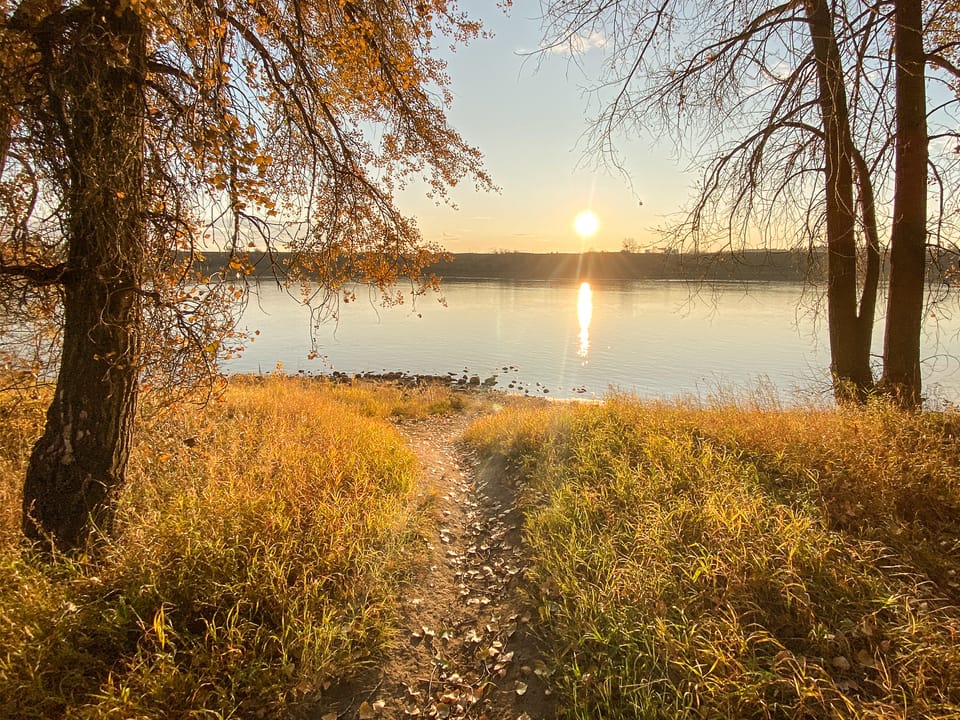EcoWest News, October 24, 2023

Welcome to EcoWest News, a weekly round-up of news and resources that you can put to use in addressing environmental issues and protecting the wild in your community.
Across the West
Bonnie Dell, Executive Director of Wildlife Rescue Society of Saskatchewan, talks about the challenges faced daily in providing care for Saskatchewan’s wildlife and how people can get involved. [38-min. video, The Fur-Bearers]
A potentially illegal logging bridge over the Highwood River, one of the last habitats for bull trout in Alberta, demonstrates how the federal government is failing to adequately enforce legislation designed to protect at-risk species when issuing permits to industry. [The Tyee]
Lake Winnipeg’s watershed spans 1 million square kilometres, but algae blooms due to increased phosphorous runoff are threatening the lake’s aquatic species and water supply. [Global News]
A report by Miistakis Institute on the impact of solar development on wetlands provides a literature review, a summary of existing policies on wetlands and/or solar and wetlands, as well as recommendations. [Miistakis Institute]
Miistakis Institute has studied and recommended road mitigation sites to assist pronghorn in crossing the Trans Canada Highway as it passes through Saskatchewan and Alberta. [Miistakis Institute]
Large carnivores such as wolves play an important role in nature, but so do smaller creatures such as cabbage butterflies and pocket mice, performing important ecosystem services such as churning up soil or filtering water. [Raincoast Conservation Foundation]
Siksika Nation in southern Alberta plans to plant shelterbelts throughout the community to reduce erosion and increase moisture in the soil. [CBC]
Around the World
France’s mosaic forest is designed to withstand climate change by diversifying species. There are ageing islands with trees providing shelter for birds and insects, natural regeneration areas (no planting), as well as various combinations of softwoods and hardwoods. Harvesting is more complicated, but the soil and ecosystem function more effectively in mixed plots. [EuroNews Green]
Planting trees and reducing our carbon footprint isn’t enough. Instead, the goal should be to restore ecosystem functionality and to pay closer attention to water transport. [Nature]
Energy
The best way to reduce GHG emissions from the oil industry is by reducing demand. “This is a more difficult task than protesting particular projects or companies; it involves changing the system through which we use energy.” [Planetizen]
Mobile microgrids that deliver renewable power anywhere it’s needed could replace diesel generators – and they’re beautiful too. [The Energy Mix]
Public health studies link fracking to an array of health harms, including cancer, cardiovascular disease, asthma and birth defects. [Inside Climate News]
DIY
At the Table: The Chef’s Guide to Advocacy offers numerous examples of chefs who have found creative ways of using their platforms to raise funds and awareness and influence policy on climate action. [Grist]
Enjoy nature and help to protect it by participating in the Nature Conservancy of Canada’s Small Acts of Conservation challenge. [NCC]
A new online Outdoor Play and Learning tool is designed to help parents, caregivers, and educators gain the skills and confidence to support outdoor play and learning in elementary schools from kindergarten through Grade 7. [UBC]
Nature’s Wonders
Sometimes the right person for a job isn’t a person at all – from bat librarians to ferret electricians and hawk bouncers. [The Guardian]
Swimming in a galaxy of sea jellies – amazing photographs from off the coast of Vancouver Island. [The Marine Detective]
Photo credit: https://www.flickr.com/photos/apmckinlay/48925924691
EcoFriendly West informs and encourages initiatives that support Western Canada’s natural environment through its online publication and the Nature Companion website/app. Like us on Facebook, follow us on Twitter or Mastodon, or subscribe by email.

Member discussion